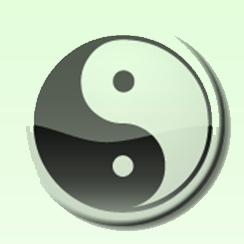
●Who list of conditions treatable by acupuncture
●The Complementary Roles of Eastern and Western Medicine
●How Acupuncture Works Scientifically
●The Mechanism of Acupuncture
●What Kinds of Conditions Can Benefit from Acupuncture ?
●Testimony
●Acupuncture
THE COMPLEMENTARY ROLES OF EASTERN AND WESTERN MEDICINE |
Western and Eastern medicine are both useful. When combined, they form an effective diagnostic and the rapeutic program. Chinese medical theory is based on five thousand years of empirical investigation. This has resulted in the systematized medicine we have today. Like Western medicine, modem science has investigated many the theories to explain the underlying principles of the physiology and therapy of Eastern medicine.
THE PRINCIPALS OF MEDICAL PHILOSOPHY
The Chinese base their medical theory on a cosmology and science that postulates a universe divided into two fundamental parts. These parts are called Yin and Yang. These terms express the polar and complementary quality of all effects. Yin and Yang are a duality of opposite and balancing forces forming the entire universe. This relationship exists in all things whether it be human, anima, vegetable, mineral or thought.
Nothing exists that can't be divided into a Yang and Yin part. When opposing forces of a complementary nature combine, a balance whole exists. For example, a complete day consists of a period of darkness (Yin) and light (Yang). Also, unlike things have a Yin/Yang relationship. Fire (Yang) and water (Yin) oppose and balance each other in their effect and nature.
The natural expression of Yin/Yang is the fundamental principle of nature and is the basis for elaborating a complex physiology of man .Acupuncture practice concerns itself with the identification of syndromes expressed as a Yin/Yang relationship in the body. A skilled practitioner knows how to interpret the various symptoms and read the signs. The reason for an underlying imbalance and disturbance in the body may be induced by observing the reappearing patterns of diseases to determining its basic disharmony.
Acupuncturists develop treatment plans based on patterns and syndromes of the entire body rather that isolated problems. Only by balancing the whole being and relieving the underlying disharmony can a cure be achieved.
Western medicine is based on observation and classification of specific diseases. Concentration is focused on pathophysiological of morphological changes .Illnesses that have reached a point where germs or tissue damage are identifiable by tests are then treated.
Western and Eastern medicine may often be used in combination to alleviate illness and in so doing they complement each other. Western medicine repairs structural damage, whether caused by organism or trauma, whereas acupuncture restores the electrical energy of the body to normal, thereby assisting the tissues and organs to function properly. Western medicine is effective for treating acute, structural and easily quantifiable illnesses. Acupuncture treats illnesses that are electro-physiological, chronic or subjective in nature. Together they can treat a far greater number of illnesses that either could alone. |
 A-B-C Acupuncture Clinic
A-B-C Acupuncture Clinic
